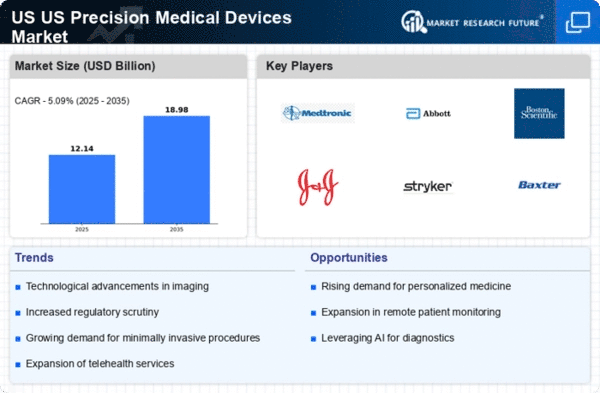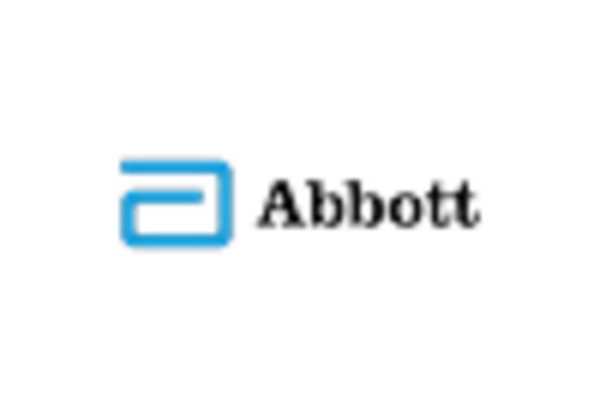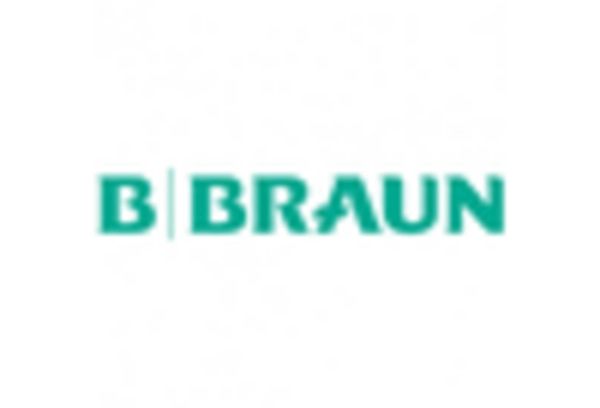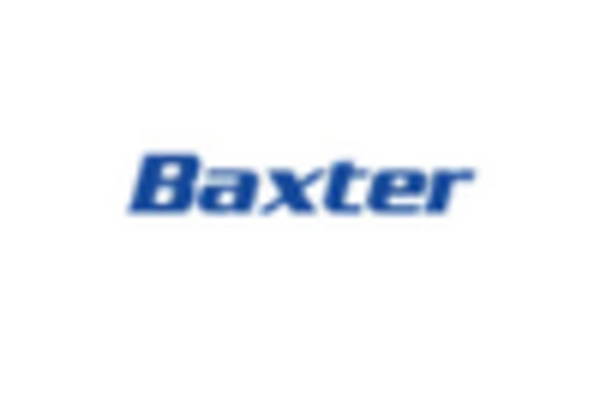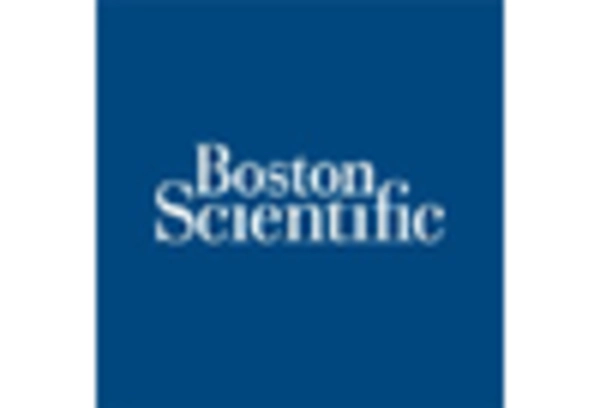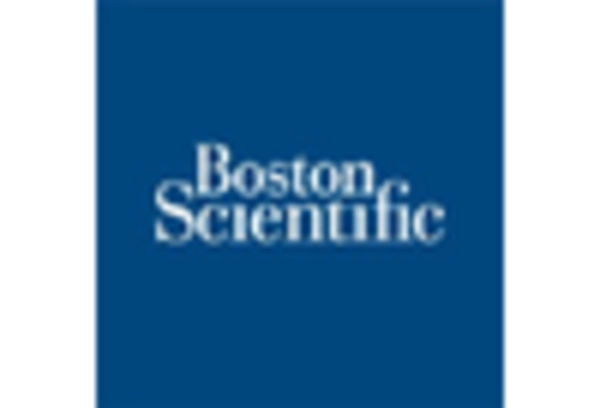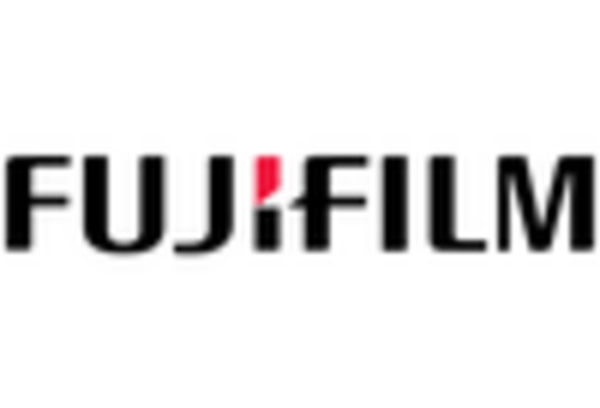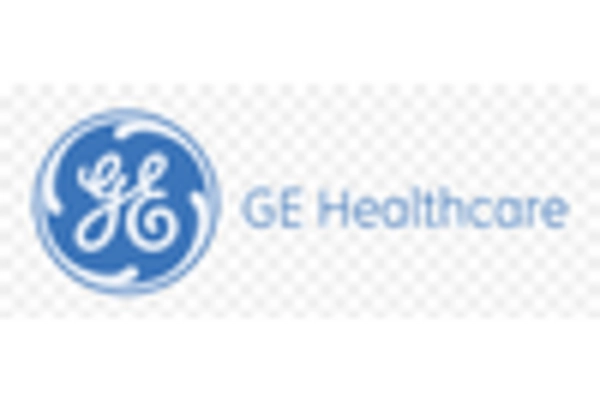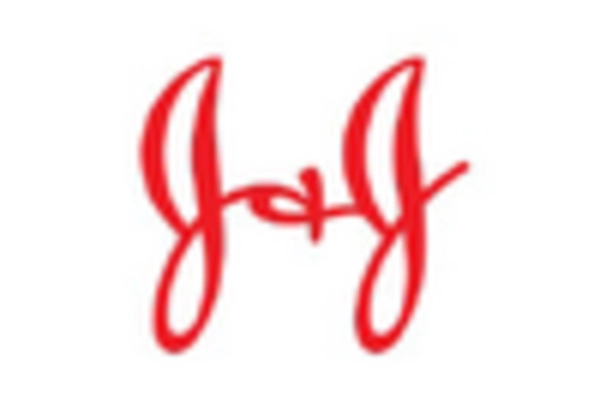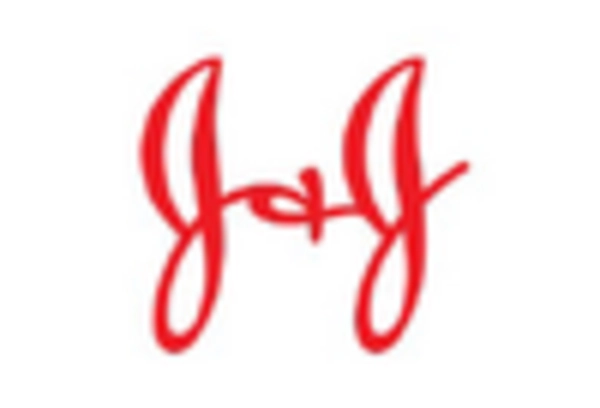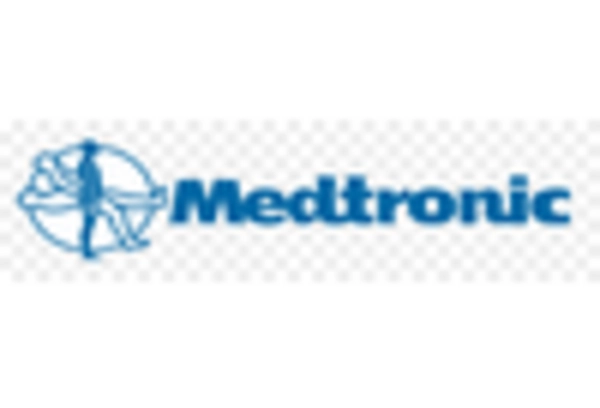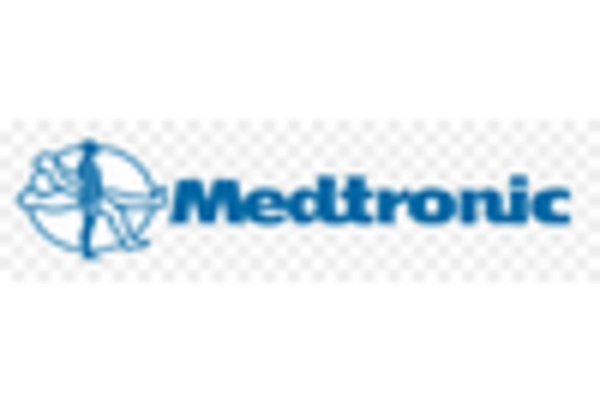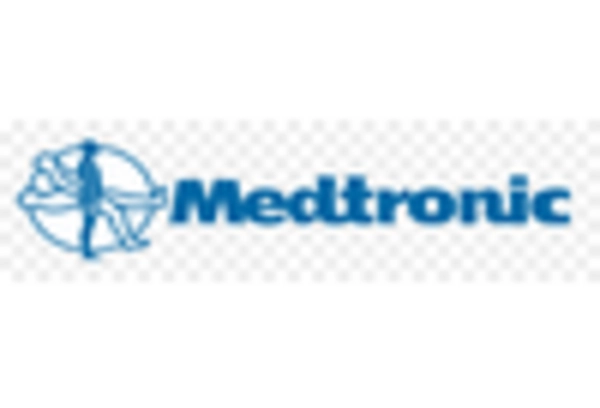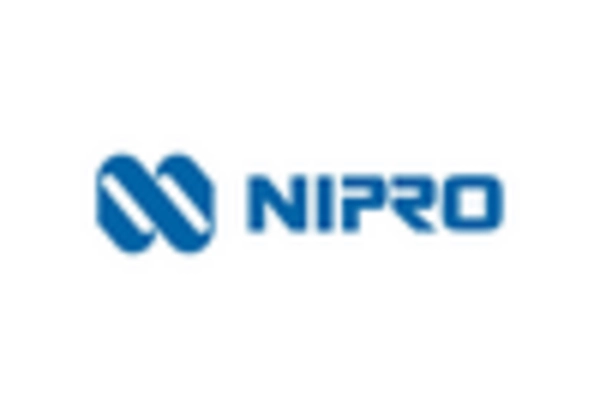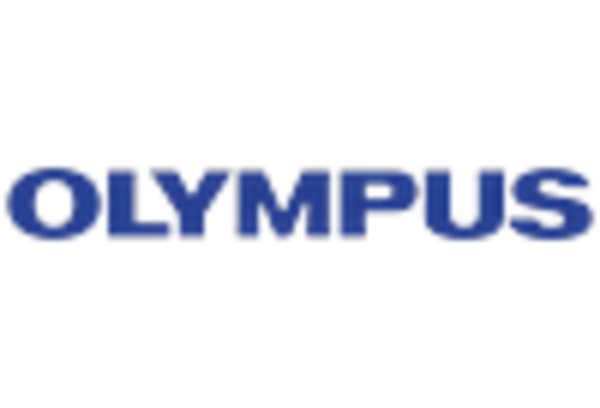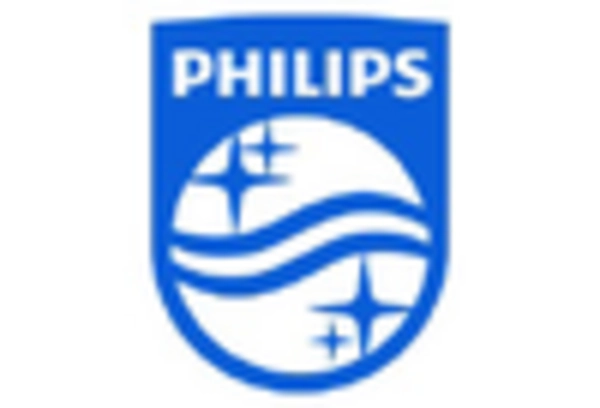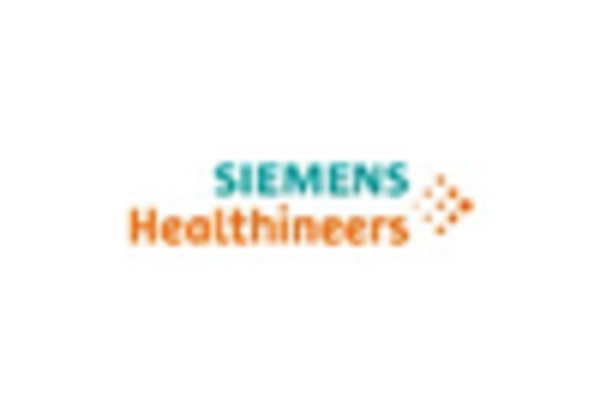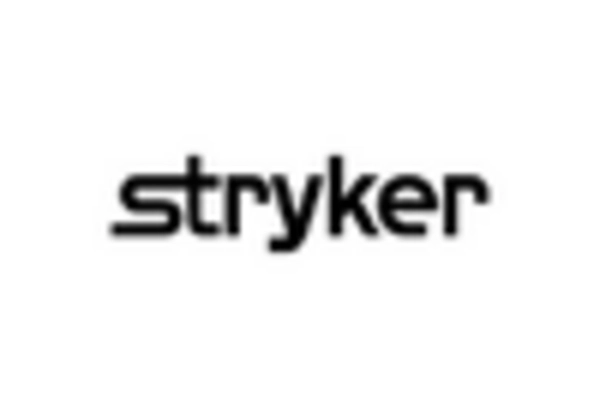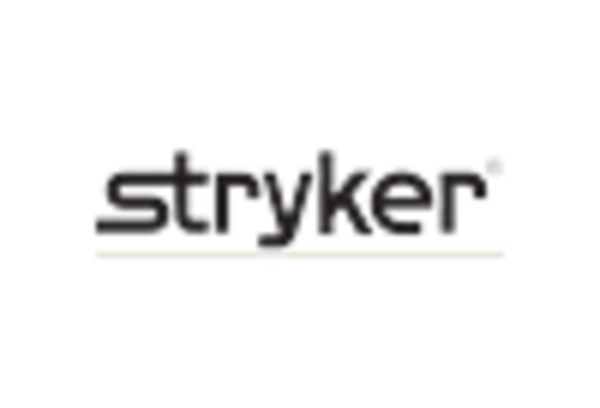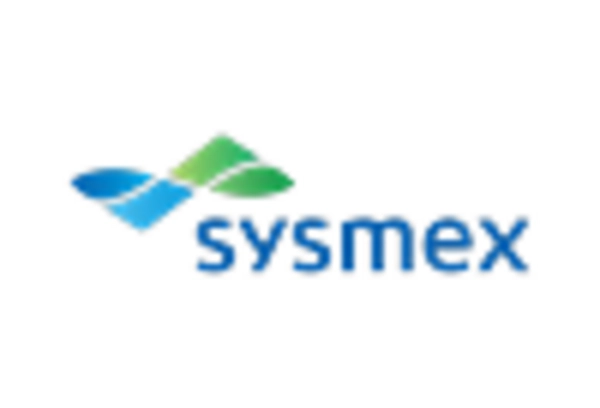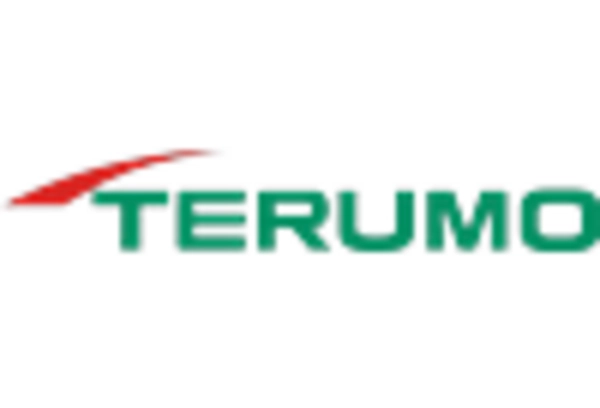Growing Aging Population
The demographic shift towards an aging population in the United States is a critical driver for the US Precision Medical Devices Market. As the population aged 65 and older continues to expand, the demand for precision medical devices tailored to chronic conditions such as diabetes, cardiovascular diseases, and orthopedic issues is likely to rise. According to projections, by 2030, one in five Americans will be of retirement age, necessitating advanced medical solutions. This demographic trend compels healthcare providers to adopt precision devices that cater to the unique needs of older patients, thereby fostering market growth. The increasing prevalence of age-related health issues underscores the importance of precision in medical interventions.
Regulatory Support for Innovation
Regulatory frameworks in the United States are evolving to support innovation within the US Precision Medical Devices Market. The FDA has implemented initiatives aimed at expediting the approval process for breakthrough devices, thereby encouraging manufacturers to invest in research and development. Programs such as the Breakthrough Devices Program are designed to facilitate the availability of devices that provide more effective treatment options for patients. This regulatory support is likely to foster a conducive environment for innovation, enabling companies to bring advanced precision medical devices to market more rapidly. As a result, the industry may witness an influx of novel products that enhance patient care and improve health outcomes.
Rising Demand for Personalized Medicine
The trend towards personalized medicine is significantly influencing the US Precision Medical Devices Market. Patients increasingly expect treatments tailored to their individual genetic profiles and health conditions. This shift is prompting manufacturers to develop precision devices that can deliver customized therapies, such as targeted drug delivery systems and genetic testing devices. The market for personalized medicine is anticipated to grow substantially, with estimates suggesting it could reach over 2 trillion USD by 2025. This growing demand for tailored healthcare solutions is likely to drive innovation and investment in precision medical devices, as stakeholders aim to meet the evolving expectations of patients and healthcare providers.
Technological Advancements in Medical Devices
The US Precision Medical Devices Market is experiencing a surge in technological advancements, particularly in areas such as robotics, imaging, and minimally invasive procedures. Innovations like robotic-assisted surgeries and advanced imaging techniques are enhancing precision and outcomes in patient care. For instance, the market for robotic surgical systems is projected to grow significantly, driven by increasing demand for precision in surgical procedures. Furthermore, the integration of smart technologies, such as wearable devices that monitor health metrics in real-time, is likely to reshape patient management strategies. These advancements not only improve clinical outcomes but also reduce recovery times, thereby increasing the overall efficiency of healthcare delivery in the US.
Increased Investment in Healthcare Infrastructure
Investment in healthcare infrastructure is a pivotal factor propelling the US Precision Medical Devices Market. The US government and private sector are channeling substantial funds into upgrading healthcare facilities and integrating advanced medical technologies. For example, the implementation of electronic health records and telemedicine platforms is enhancing the efficiency of healthcare delivery. The US healthcare expenditure is projected to reach approximately 20% of GDP by 2028, indicating a robust commitment to improving healthcare services. This influx of capital is likely to facilitate the adoption of precision medical devices, as healthcare providers seek to enhance patient outcomes and operational efficiency.


